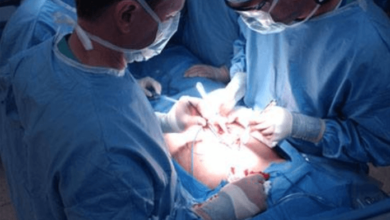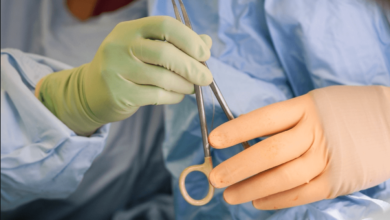Exploring the World of what is a Cardiothoracic Surgeon

Cardiothoracic surgery, a dynamic and critical field in healthcare, plays a pivotal role in treating conditions affecting the heart and chest. These skilled professionals, known as cardiothoracic surgeons, undergo extensive training to perform intricate surgeries that can be life-saving. In this article, we’ll delve into the world of what is a cardiothoracic surgeon, exploring the responsibilities of these surgeons, the education and skills required, common procedures, and the impact of advancements in the field.
What Does a Cardiothoracic Surgeon Do?
Cardiothoracic surgeons specialize in operating on organs within the chest, particularly the heart and lungs. Their expertise extends to a variety of conditions, including congenital heart defects, coronary artery disease, and lung cancer. The scope of cardiothoracic surgery encompasses a wide array of procedures, making these professionals an indispensable part of the healthcare system.
Education and Training
Becoming a cardiothoracic surgeon is no small feat. It requires a rigorous educational journey, starting with a bachelor’s degree in a relevant field, followed by medical school. After completing medical school, aspiring surgeons enter a residency program, where they gain hands-on experience in various surgical specialties. Cardiothoracic surgeons then pursue additional training through fellowship programs, honing their skills in the intricacies of chest and heart surgery.
Skills and Qualities of a Cardiothoracic Surgeon
Technical proficiency is just one facet of a cardiothoracic surgeon’s skill set. These professionals must also possess exceptional collaborate with other medical professionals. Additionally, the ability to make critical decisions under pressure is paramount in the high-stakes environment of cardiothoracic surgery.
Common Cardiothoracic Procedures
Cardiothoracic surgeons perform a range of procedures, from coronary artery bypass grafting to heart valve repair. One of the most common surgeries is the coronary artery bypass, where a surgeon reroutes blood flow around a blocked artery to improve blood supply to the heart. Exploring these procedures in detail helps demystify the complex world of cardiothoracic surgery.
Advancements in Cardiothoracic Surgery
Technological innovations have significantly impacted the field of cardiothoracic surgery. From minimally invasive techniques to robotic-assisted surgery, these advancements have improved patient outcomes and reduced recovery times. Surgeons now have access to state-of-the-art tools.
Challenges Faced by Cardiothoracic Surgeons
While cardiothoracic surgery is rewarding, it comes with its share of challenges. Surgeons often face the pressure of performing surgeries with high stakes, coupled with long working hours and demanding schedules. Navigating these challenges requires resilience, dedication, and a passion for the well-being of patients.
Importance of Teamwork
Collaboration is key in the world of cardiothoracic surgery. Surgeons work closely with an entire team of medical professionals, including anesthesiologists, nurses, and other surgeons.
Patient Care and Communication
In addition to surgical skills, cardiothoracic surgeons must excel in patient care and communication. Effectively conveying complex medical information to patients and their families is crucial for informed decision-making and postoperative care. The human touch is as essential as the technical expertise in providing holistic healthcare.
Notable Cardiothoracic Surgeons in History
The field of cardiothoracic surgery boasts a rich history with notable pioneers who have shaped its course. From Dr. Christiaan Barnard, the first surgeon to perform a successful heart transplant, to Dr. Michael DeBakey, a pioneer in cardiovascular surgery, these individuals have left an indelible mark on the field.
Future Trends in Cardiothoracic Surgery
Looking ahead, the future of cardiothoracic surgery holds exciting possibilities. Ongoing research and technological advancements are likely to pave the way for innovative treatments and improved surgical techniques. The intersection of medicine and technology promises a bright future for cardiothoracic surgery.
How to Become a Cardiothoracic Surgeon
For those considering a career in cardiothoracic surgery, the path is challenging but rewarding. A step-by-step guide, from obtaining the necessary education to navigating residency and fellowship programs, can provide aspiring surgeons with a roadmap to success in this specialized field.
The Impact of Cardiothoracic Surgery on Patients
The true measure of success in cardiothoracic surgery lies in the impact on patients’ lives. Testimonials and success stories underscore the transformative effect these surgeries can have, improving the quality of life for individuals with heart and chest conditions.
Misconceptions About Cardiothoracic Surgery
Addressing common myths and misconceptions is crucial for promoting awareness and understanding of cardiothoracic surgery. By dispelling these myths, we can foster a better appreciation for the challenges and triumphs of cardiothoracic surgeons. Read more…
Conclusion
In conclusion, What is a cardiothoracic surgeon stands as a testament to the intersection of skill, technology, and compassion in healthcare. The contributions of cardiothoracic surgeons are invaluable, and their impact reverberates through the lives of patients. As we continue to witness advancements and breakthroughs in the field, the importance of these skilled professionals in preserving and enhancing life remains unparalleled.
FAQs
- Is cardiothoracic surgery only for heart-related conditions?
- No, cardiothoracic surgery also encompasses surgeries related to the lungs and chest.
- How long does it take to become a cardiothoracic surgeon?
- The journey typically involves several years of education, residency, and fellowship, spanning over a decade.
- What are the risks associated with cardiothoracic surgery?
- Like any surgery, there are risks, but advancements have minimized complications.
- Can cardiothoracic surgery be performed using minimally invasive techniques?
- Yes, many cardiothoracic procedures can now be done using minimally invasive or robotic-assisted techniques.
- How do cardiothoracic surgeons stay updated on the latest advancements?
- Continuous education, attending conferences, and participating in research help surgeons stay abreast of the latest developments.




